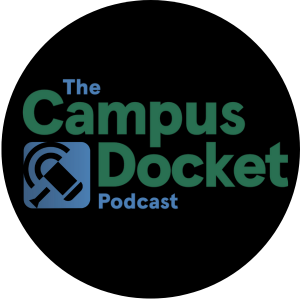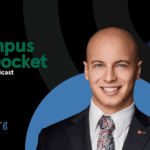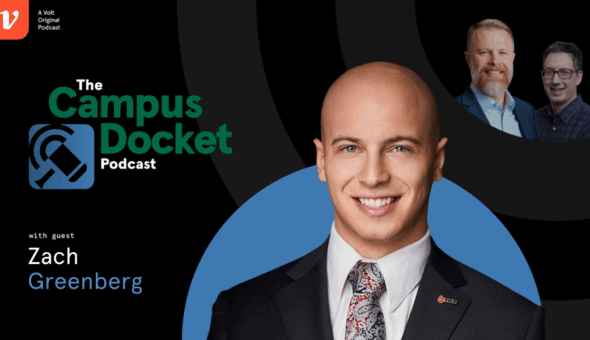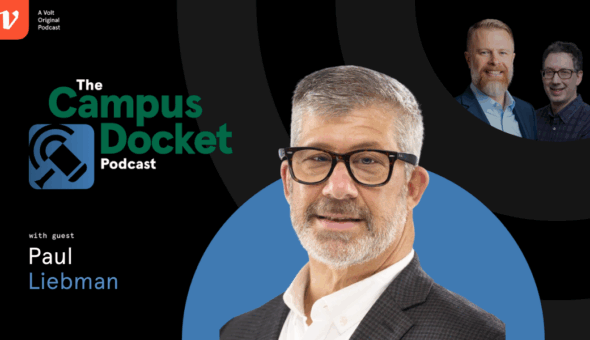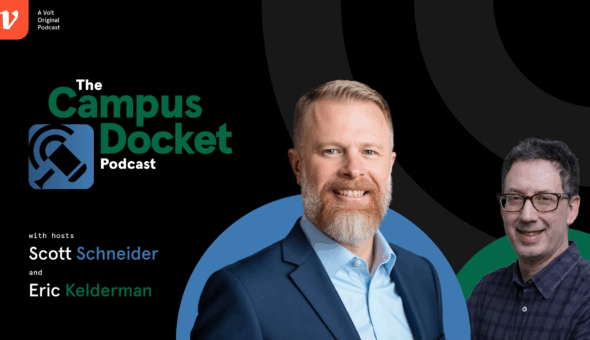Colleges are the last place for open conversations.
For many small colleges, surviving today’s higher ed landscape feels like walking a tightrope in a windstorm—balancing shrinking enrollments, rising compliance costs, and cultural flashpoints that threaten to pull them off course. In this episode of Campus Docket, Marjorie Hass, president of the Council of Independent Colleges, joins hosts Scott D. Schneider and Eric Kelderman to unpack what’s keeping college presidents up at night.
From whiplash-inducing shifts in federal guidance to the spiraling costs of legal compliance, Hass explains how even the smallest institutions are expected to play by the same rules as well-resourced R1s—but without the staff or funding. The discussion also touches on the cultural wars surrounding higher education and the perception of colleges as participants in these conflicts. Hass emphasizes the need for institutions to adapt and respond to these challenges while maintaining their commitment to education and inclusivity.
The conversation doesn’t shy away from hot-button issues like DEI and free speech. Hass encourages college leaders to read executive orders with “clear eyes,” reminding them that rhetoric and enforceable policy are not the same.
As for the question at the heart of the episode—is college too woke?—Hass offers a layered response. Economic pressure, rising tuition, and shifting cultural values have made college feel both more necessary and more suspect. Meanwhile, elite institutions dominate headlines, leaving the public with a distorted view of what higher education really looks like.
Hass pushes back on that narrative. Most students aren’t protesting on the quad at an Ivy—they’re attending small, mission-driven colleges that prioritize relationships, real dialogue, and care. “There’s magic in the context of smaller colleges,” she says. “It’s harder to demonize others when you have a variety of touch points.”
At a time when higher ed is often cast as a villain in national debates, Hass offers a reminder: real learning, hard conversations, and community care are still happening—just maybe not where the cameras are pointed.
The Docket
- National Education Association v. United States Department of Education and NAACP v. U.S. Department of Education (Ongoing)
- Both lawsuits have led to federal court rulings that temporarily block the enforcement of the Department’s directive, citing concerns over constitutional violations and procedural issues.
- National Socialist Party of America v. Village of Skokie (1977)
- The ruling reinforced the idea that even deeply offensive and hateful speech is protected under the First Amendment, as long as it does not incite imminent lawless action or pose a direct threat.
- Additional Legal Concepts and Entities Referenced
